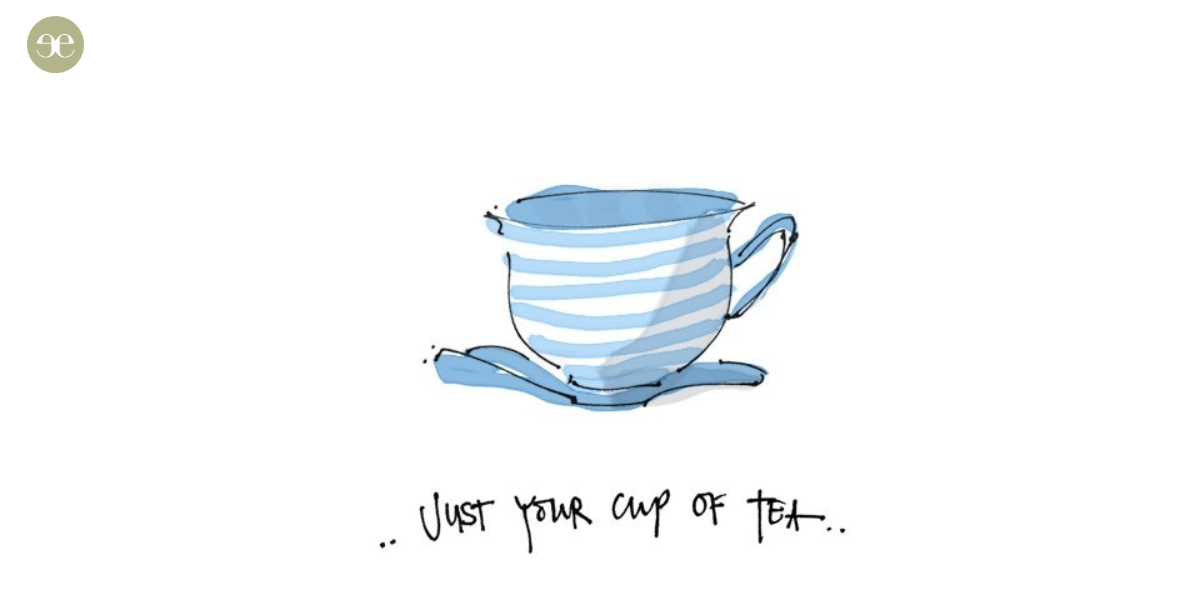Just your cup of tea: The essence of Englishness
by Claire Niven
 >
>
This blog about all things English may just be your cup of tea
A nice cup of tea
English people hold a lot of things dear. We love to apologise, even before we have bumped into anyone. We love to eat fish and chips. We love the seaside. But most of all we love a nice cup of tea.
The Brits are a dedicated nation of tea drinkers. Tea is a homely drink. It is for domestic matters. A nice cup of tea is the closest explanation of that untranslatable Dutch word gezellig. This is often translated as cosy, but all English people know that cosy is really a word that comes after tea and means a soft knitted cover which you put over a teapot to keep the tea hot.
Coffee or tea?
Nobody understands devotion to a hot beverage more than the Dutch. Their dedication to coffee puts them fifth in the top coffee consuming nations. Coffee drinking may have a certain chicness, but folk in Britain wouldn’t give up their daily cuppa, not for all the tea in China (i.e. any reason whatsoever).
A nice cup of tea is the answer to most of the world’s problems. Your dog bit the postman – have a nice cup of tea. Your car broke down in the middle of rush hour – have a nice cup of tea. Fireball approaching earth at an alarming speed – how about a quick cuppa before we all perish?
Tea is also responsible for that most British of hobbies: the cultivation of a large and mismatched mug collection. And regardless of the amount and variety of mugs in the kitchen cupboard, you’ll have a neurotic attachment to just one. Your favourite. This may not be used by anyone else or there will be a storm in a teacup (i.e. great outrage about a trivial matter).
The not so trivial tea break
Workplaces up and down the country set aside time for drinking tea. Tea-making protocol varies from office to office and can reveal another element of Englishness—politeness (otherwise known as the art of saying the opposite of what you mean to avoid awkwardness).
Your well-mannered ‘anyone want a cup of tea?’ question was only intended for the two people sitting nearest but was unfortunately overheard by the entire office. You now find yourself in the small cramped kitchen with an assortment of 12 mugs and the same number of separate instructions: ‘Mine's the one with a cat on it’, ‘Two sugars please’, ‘Not too much milk’, ‘Don’t leave the tea bag in for long’.
On the bright side, you have now earned 12 cups of tea before you need to put the kettle on again. And you had the chance to spill the tea (i.e. gossip) in the kitchen!
To dunk or not to dunk?
This is the last important consideration in any healthy analysis of tea drinking.
You never dip a biscuit in your tea, or put it there, or immerse it or sink it or anything else you can think of. You always dunk it. The word dunk is so inextricably linked to biscuits and tea that it’s hard not to conjure up a chocolate digestive in your mind when you hear it.
Handling stress
There is a good chance that you will get the timing wrong, the biscuit will get too soggy and drop into your tea. Your precious tea moment will then be spent fishing out a gloopy mess from the bottom of your favourite mug. Or you could turn to the colleague next to you, slide the mug across the desk and use that timeless phrase: ‘Fancy a cuppa?’
If this is just your cup of tea (i.e. something of interest to you) then The Independent, one of Britain’s serious newspapers, has compiled a comprehensive list of the best biscuits for dunking.